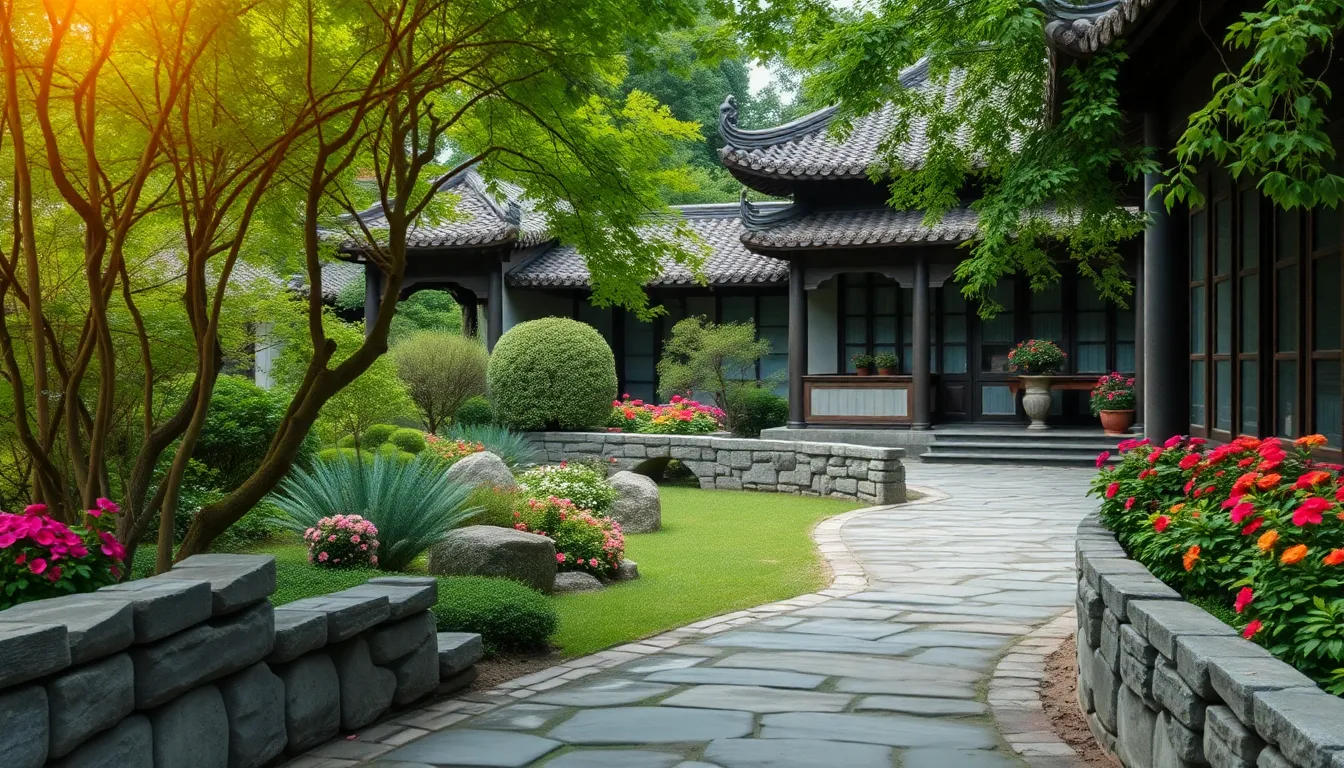In a world where cultural experiences shape our understanding, youjiushijie stands out as a captivating concept. Originating from Chinese philosophy, it embodies the idea of a harmonious existence, intertwining the past with the present. This intriguing term invites individuals to explore the delicate balance between tradition and modernity, encouraging a deeper appreciation for life’s complexities.
As globalization continues to influence societies, youjiushijie offers valuable insights into how we navigate our identities. It challenges individuals to reflect on their roots while embracing change, fostering a sense of belonging in an ever-evolving landscape. Delving into this concept reveals not just cultural significance but also practical applications in daily life, making it a topic worth exploring for anyone interested in personal growth and cultural awareness.
Table of Contents
ToggleOverview of Youjiushijie
Youjiushijie, a concept rooted in Chinese philosophy, embodies the principle of harmonious existence by intertwining the past with the present. This philosophy advocates for a balanced relationship between tradition and modernity. By appreciating historical context, individuals foster cultural awareness, which enhances their adaptability in a rapidly changing world.
The concept plays a significant role in personal growth. Embracing youjiushijie encourages individuals to reflect on their cultural roots while navigating contemporary challenges. This dynamic fosters a strong sense of belonging, as people align their identities with both their heritage and the modern landscape.
In practical applications, youjiushijie can impact various areas, such as education, community development, and personal interactions. By integrating traditional values with modern practices, individuals contribute to a cohesive society. This approach promotes innovative problem-solving and enriches cultural exchanges, making youjiushijie essential for those seeking to harmoniously merge their past with their present.
History and Development
Youjiushijie has deep roots in Chinese philosophy, where it embodies the connection between historical traditions and contemporary existence. This concept has evolved significantly over time, reflecting shifts in societal values and globalization.
Origins of Youjiushijie
Youjiushijie originates from ancient Chinese thought, particularly Confucianism and Taoism. Confucianism emphasizes harmony, respect for ancestors, and the importance of rituals, while Taoism advocates for living in accordance with nature and the flow of life. These philosophical foundations laid the groundwork for understanding balance and unity between past traditions and modern experiences. The term itself highlights how the past shapes present identity and future aspirations, urging individuals to honor their heritage while embracing change.
Evolution Over Time
Youjiushijie has evolved alongside societal transformations, such as modernization and increased global interactions. In the late 20th century, economic reforms in China led to rapid urbanization and cultural exchanges with the West. This period saw a re-emphasis on traditional values amid the pressures of modernization. Contemporary applications of youjiushijie promote integrating historical perspectives into various sectors, including education, urban planning, and interpersonal relationships. The rise of digital communication has further facilitated this integration, allowing for a broader sharing of cultural experiences and debates surrounding identity in an interconnected world.
Features of Youjiushijie
Youjiushijie embodies various characteristics that reflect its core principles. These features promote a balanced integration of tradition and modernity, aiming for personal and societal enrichment.
Key Characteristics
- Cultural Reflection: Youjiushijie encourages individuals to explore and honor their cultural heritage. It emphasizes the significance of historical context in shaping identity and personal values.
- Harmonious Integration: The concept promotes a seamless blending of traditional customs with contemporary practices. It seeks to establish coherence between past influences and current realities.
- Adaptive Mindset: Youjiushijie fosters adaptability in a rapidly changing environment. Individuals learn to navigate challenges effectively by drawing lessons from both historical and modern perspectives.
- Community Engagement: It highlights the importance of community involvement. Youjiushijie encourages collaborative efforts to enhance cultural exchanges and foster unity among diverse groups.
- Educational Value: The integration of youjiushijie in education emphasizes critical thinking and cultural awareness. It inspires students to appreciate their roots while remaining open to global influences.
Unique Selling Points
- Cultural Relevance: Youjiushijie serves as a framework for individuals seeking deeper cultural connections. It addresses the challenges posed by globalization while promoting a sense of belonging.
- Flexible Application: The concept adapts to various domains, such as education, business, and personal development. Its versatility allows for innovative approaches to problem-solving.
- Promotes Emotional Resilience: Engaging with traditional values strengthens emotional well-being. It provides individuals with a robust foundation to face life’s uncertainties.
- Interconnectedness: Youjiushijie fosters meaningful relationships among people from different backgrounds. It encourages dialogue and cultural exchange, enriching both individual and collective experiences.
- Sustainable Growth: The balance of past and present in youjiushijie contributes to sustainable societal development. It supports initiatives that respect historical legacies while embracing future opportunities.
Cultural Impact
Youjiushijie significantly impacts both local and global cultures by promoting a harmonious blend of tradition and modernity. This concept influences societal norms and fosters a deeper understanding of cultural identity.
Influence on Society
Youjiushijie encourages communities to engage in cultural reflection, enhancing social cohesion. Emphasizing community engagement, it inspires individuals to participate actively in cultural heritage preservation. For example, festivals celebrating traditional customs help strengthen community bonds while adapting to contemporary lifestyles. Moreover, educational initiatives incorporating youjiushijie foster respect for ancestral wisdom, aiding youth in navigating modern challenges while appreciating their cultural roots. These practices contribute to personal growth and collective resilience, equipping societies to manage the complexities of globalization.
Global Recognition
Internationally, youjiushijie gains recognition as a framework for integrating diverse cultural perspectives. Scholars and cultural practitioners explore its relevance in dialogues about identity and multiculturalism. Conferences and workshops spotlight youjiushijie as a tool for fostering cross-cultural exchanges, promoting mutual respect among different traditions. Digital platforms amplify its reach, allowing for the sharing of experiences related to youjiushijie worldwide. As a result, this concept evolves into a significant point of reference for individuals seeking a balanced relationship with their heritage in an increasingly interconnected world.
Conclusion
Youjiushijie stands as a vital concept in today’s interconnected world. By bridging the gap between tradition and modernity, it fosters a deeper understanding of cultural identity. This philosophy encourages individuals to embrace their heritage while adapting to contemporary challenges.
The practical applications of youjiushijie in education and community development highlight its relevance in promoting social cohesion. As individuals engage with this concept, they cultivate emotional resilience and a sense of belonging.
Ultimately, youjiushijie not only enriches personal growth but also contributes to a more harmonious society. Its emphasis on cultural reflection and adaptability makes it an essential framework for navigating the complexities of modern life.




